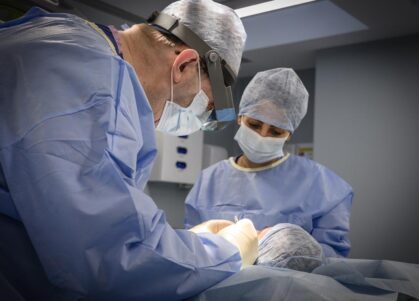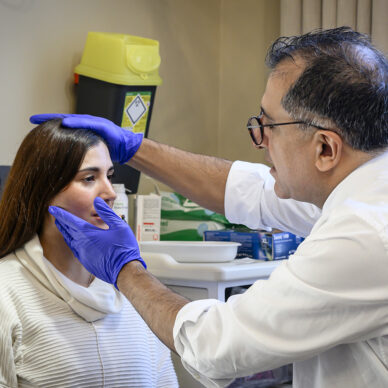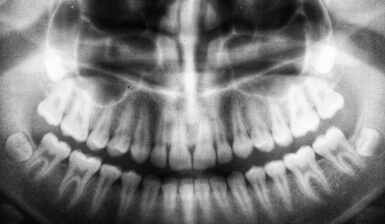Tailored, Effective Treatment
Impacted wisdom teeth can lead to infection, pain, and swelling. Misaligned teeth make cleaning difficult, increasing the risk of decay, which can spread to neighbouring teeth. Further complications may include cysts, bone loss, nerve damage, or periodontitis.
A full understanding of your dental health is essential to determine the best course of action for your wisdom teeth. Your consultant will use scans, physical exams, and their experience to assess the situation, identifying potential problems and judging whether removal is necessary.
As you age, your jawbone changes, making tooth extraction more complex. Time is a key factor, and wisdom teeth that might seem trouble-free can cause issues later on.
If removal is required, your consultant will consider all factors, including the potential for nerve damage and any preventative measures. Even if the problem seems minor, removal may still be the most suitable option in many cases.
Wisdom Teeth Removal Procedure
Anaesthesia and Sedation Options
In most cases, wisdom tooth extraction is a straightforward procedure. Local anaesthesia is typically sufficient, though intravenous sedation or general anaesthesia are available for added comfort.
Surgical Extraction for Impacted Teeth
If the tooth is impacted, a minor surgical procedure may be required to access it by carefully removing gum tissue or bone. Stitches may be necessary, either dissolving naturally or removed after about a week.
Managing Bleeding and Preventing Infection
Some bleeding after surgery is normal and can be managed with gauze and gentle pressure. Rinsing with warm salt water will help keep the area clean and reduce the risk of infection.
Post-Procedure Care and Recovery
Depending on the type of sedation used, you may need someone to drive you home. Taking the rest of the day off work is also advisable if you’ve had full sedation.
Following the procedure, you may experience mild numbness, tingling, or a change in sensation in the lips, tongue, or cheeks. This is due to the proximity of nerves to the lower wisdom teeth and is usually temporary.
Expert Care at Our London Clinic
We believe in a personalised, patient-centred approach. Your treatment will be a collaborative decision based on your current and future oral health needs.
From your initial consultation to any necessary surgery, you will be treated by an experienced maxillofacial consultant. Our clinic is equipped with state-of-the-art facilities, ensuring the highest level of care and safety.
Every member of our team is committed to providing compassionate, expert support tailored to your individual needs. If you are experiencing wisdom tooth concerns or would like a professional assessment, please contact us today.






